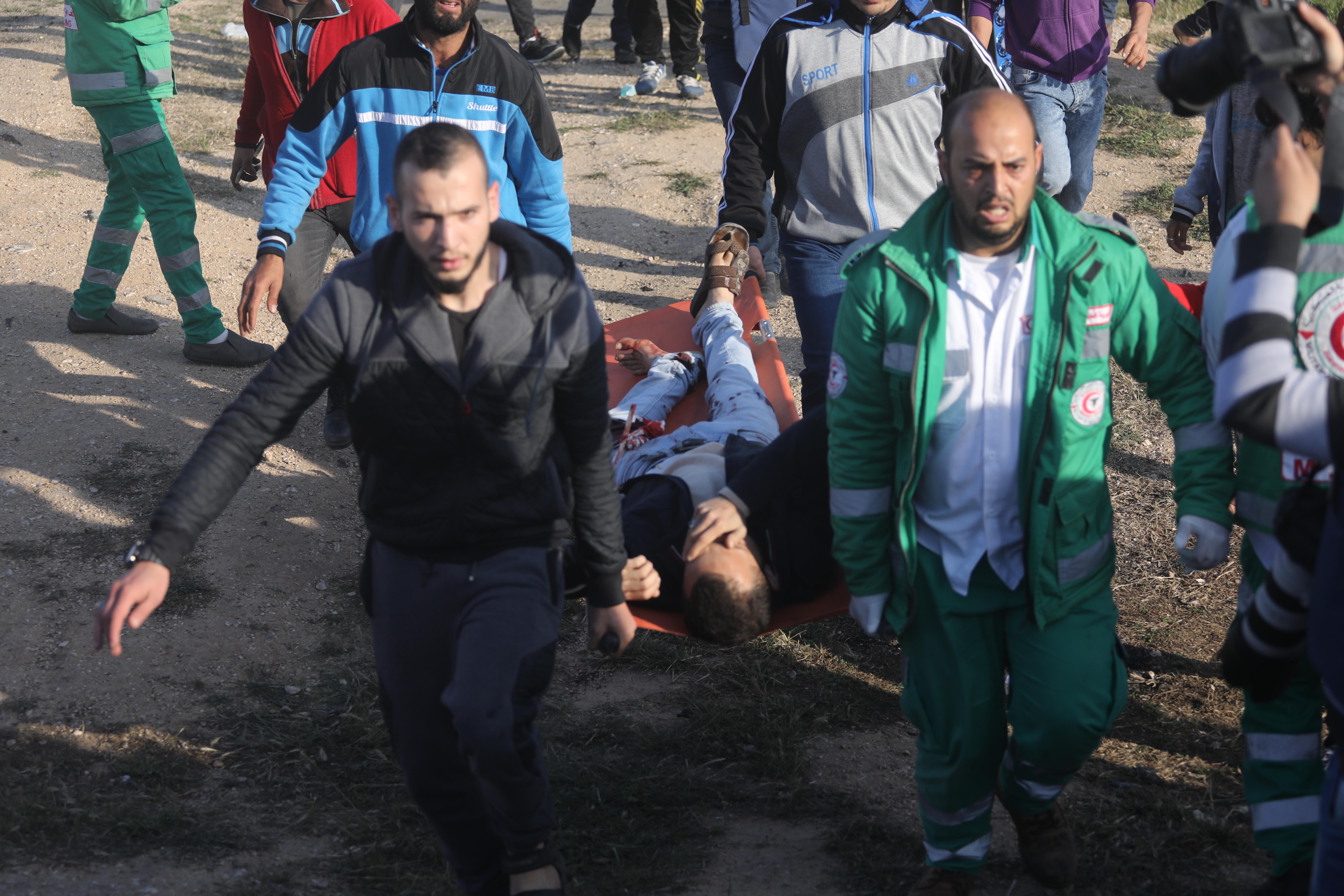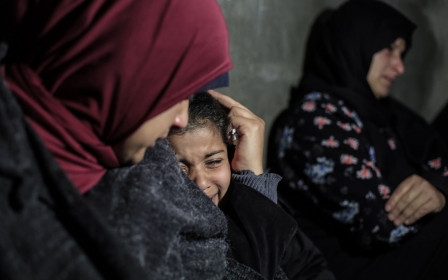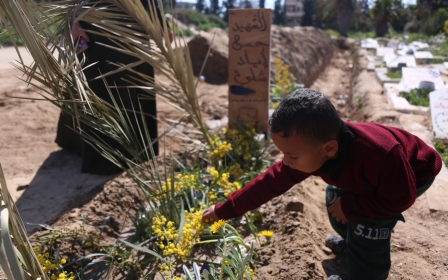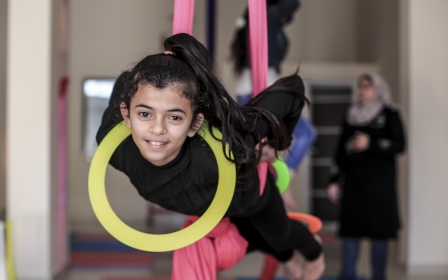Dozens of Palestinians wounded in Gaza as protests continue
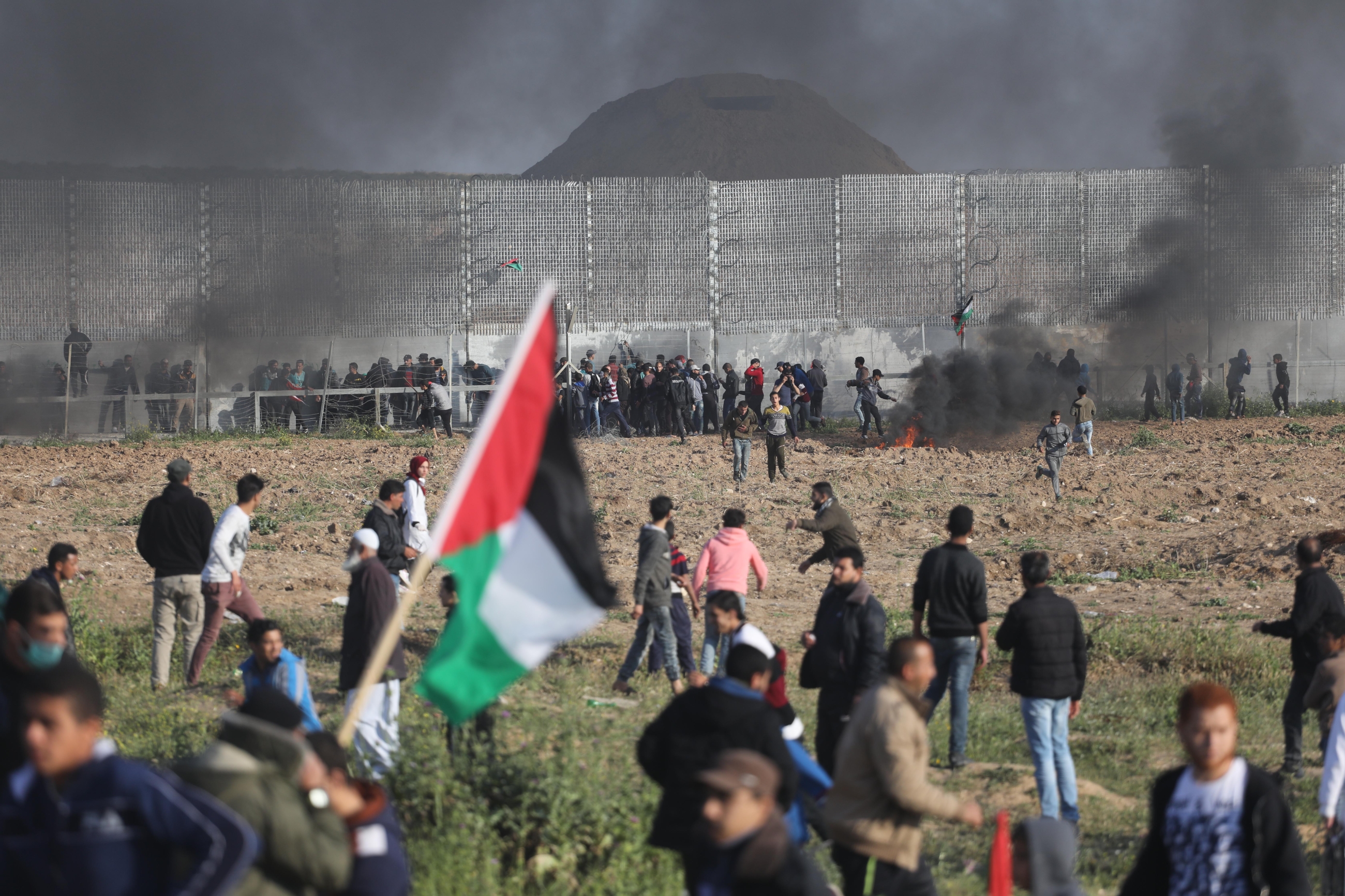
At least 83 Palestinians were injured by Israeli forces that fired tear gas and live ammunication at demonstrators on Gaza's eastern boundary, the enclave's health ministry said.
Gaza health ministry spokesman Ashraf al-Qidreh said on Friday that Palestinian protesters arrived at local hospitals with "different injuries", including gunshot wounds.
Hammad Issa, a paramedic from the Palestinian Red Crescent, told Middle East Eye that he and his colleagues were worried Friday's protest would result in mass injuries.
"We were waiting near the protesters, fearing that this could happen and it happened," Issa said.
New MEE newsletter: Jerusalem Dispatch
Sign up to get the latest insights and analysis on Israel-Palestine, alongside Turkey Unpacked and other MEE newsletters
One of the protesters, Maysaa al-Sous, told MEE that Israeli forces have recently started using a new, red-coloured tear gas.
"We were shocked when the Israeli occupation fired [the red] tear gas at us," al-Sousi said.
"In the beginning, we thought it might have serious repercussions, but until now, nothing strange [has] happened."
On Saturday, Palestinians in Gaza marked a year since the start of the Great March of Return, which demands Palestinians be allowed to return to the ancestral homes from which they were expelled in 1948.
Four Palestinians, including three 17 year olds, were killed during Saturday's protest.
Their deaths meant 52 children have been killed by Israeli forces in Gaza since the marches began, according to Save the Children.
At least 263 Palestinians have been killed in total since the end of March 2018.
Ahead of Saturday's protest, Palestinian factions called for calm, while about 8,000 members of the security services were deployed along Gaza's 65km boundary with Israel to stop protesters from reaching the fence.
The security forces operated with the assistance of an Egyptian delegation that has been brokering negotiations between Israel and Hamas, the Palestinian faction that governs Gaza.
Both the Egyptians and Hamas leader in Gaza, Yahya Sinwar, appeared near the boundary to urge restraint last weekend.
Hamas hopes an agreement with Israel can help to ease the blockade that is crippling the deprived coastal enclave.
"Today I salute the people who participated in their thousands in this protest, despite the hunger," Khalil al-Hayya, a senior member of Hamas's politburo, told MEE on Saturday.
Middle East Eye delivers independent and unrivalled coverage and analysis of the Middle East, North Africa and beyond. To learn more about republishing this content and the associated fees, please fill out this form. More about MEE can be found here.


